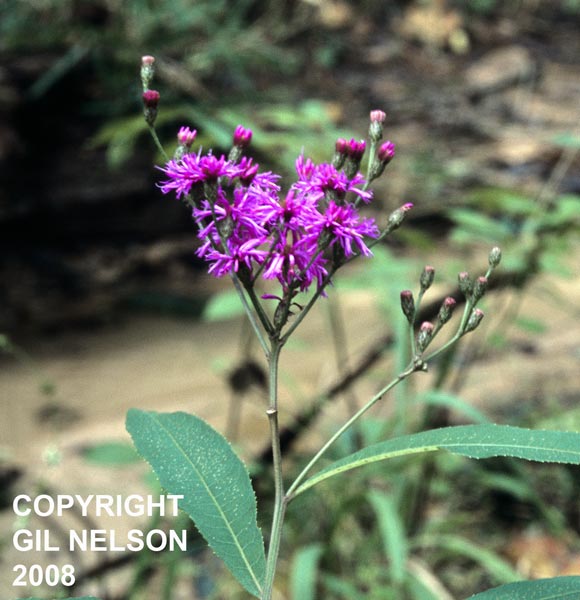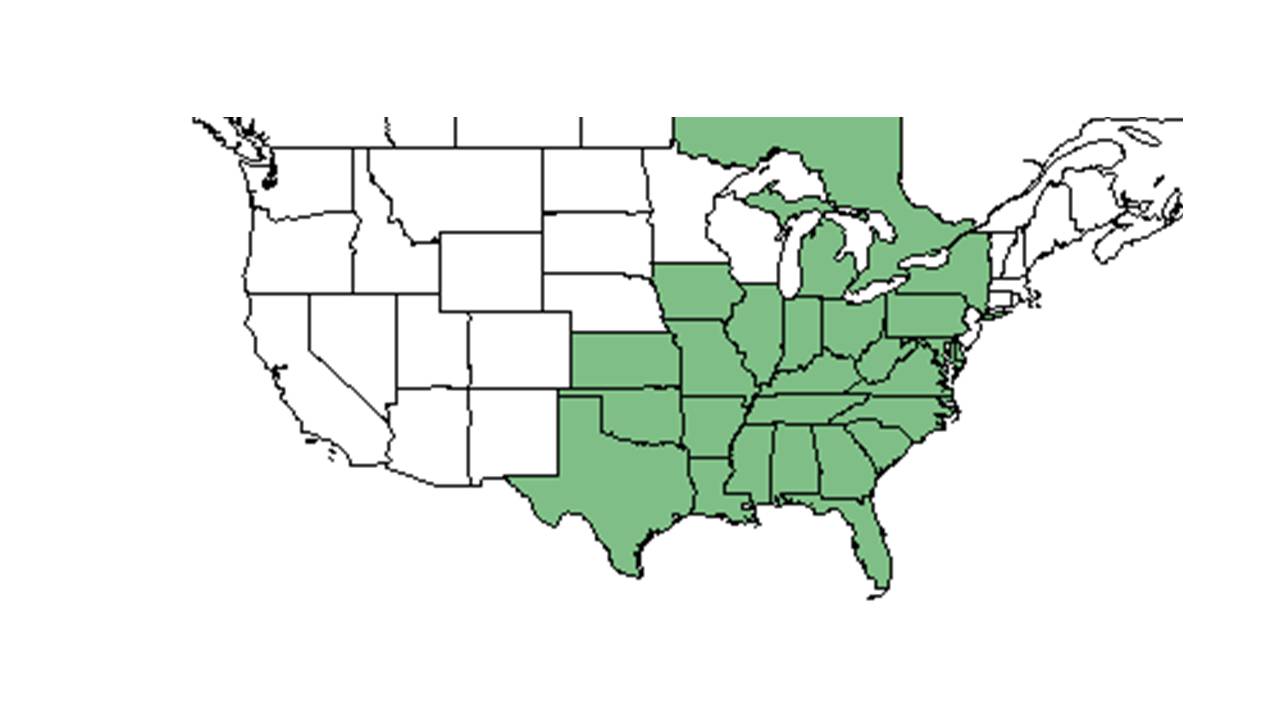Difference between revisions of "Vernonia gigantea"
(Created page with "{{italic title}} <!-- Get the taxonomy information from the NRCS Plants database --> {{taxobox | name = Vernonia gigantea | image = Vernonia gigantea_Gil.jpg | image_caption =...") |
|||
| Line 22: | Line 22: | ||
==Ecology== | ==Ecology== | ||
===Habitat=== <!--Natural communities, human disturbed habitats, topography, hydrology, soils, light, fire regime requirements for removal of competition, etc.--> | ===Habitat=== <!--Natural communities, human disturbed habitats, topography, hydrology, soils, light, fire regime requirements for removal of competition, etc.--> | ||
| + | It can be found in disturbed successional areas (Emery et al 2011). It is commonly found in lowland forest habitats (Emery et al 2011). | ||
===Phenology=== <!--Timing off flowering, fruiting, seed dispersal, and environmental triggers. Cite PanFlora website if appropriate: http://www.gilnelson.com/PanFlora/ --> | ===Phenology=== <!--Timing off flowering, fruiting, seed dispersal, and environmental triggers. Cite PanFlora website if appropriate: http://www.gilnelson.com/PanFlora/ --> | ||
===Seed dispersal=== | ===Seed dispersal=== | ||
===Seed bank and germination=== | ===Seed bank and germination=== | ||
| + | It seems that heating at low temperatures stimulates germination in V. gigantea. It had a 3% average germination rate under control (25 degrees Celsius) conditions, but slightly higher rates when exposed to direct flame (Emery et al 2011). | ||
===Fire ecology=== <!--Fire tolerance, fire dependence, adaptive fire responses--> | ===Fire ecology=== <!--Fire tolerance, fire dependence, adaptive fire responses--> | ||
| + | It seems to thrive after low-intensity fires (Emery et al 2011). | ||
===Pollination=== | ===Pollination=== | ||
===Use by animals=== <!--Herbivory, granivory, insect hosting, etc.--> | ===Use by animals=== <!--Herbivory, granivory, insect hosting, etc.--> | ||
| Line 31: | Line 34: | ||
==Conservation and Management== | ==Conservation and Management== | ||
==Cultivation and restoration== | ==Cultivation and restoration== | ||
| + | ==Photo Gallery== | ||
==References and notes== | ==References and notes== | ||
| − | + | Emery, S. M., J. Uwimbabazi, et al. (2011). "Fire intensity effects on seed germination of native and invasive Eastern deciduous forest understory plants." Forest Ecology and Management 261: 1401-1408. | |
Revision as of 13:35, 22 June 2015
| Vernonia gigantea | |
|---|---|

| |
| Photo taken by Gil Nelson | |
| Scientific classification | |
| Kingdom: | Plantae |
| Division: | Magnoliophyta – Flowering plants |
| Class: | Magnoliopsida – Dicotyledons |
| Order: | Asterales |
| Family: | Asteraceae ⁄ Compositae |
| Genus: | Vernonia |
| Species: | V. gigantea |
| Binomial name | |
| Vernonia gigantea (Walter) Trel. | |

| |
| Natural range of Vernonia gigantea from USDA NRCS Plants Database. | |
Contents
Description
Distribution
Ecology
Habitat
It can be found in disturbed successional areas (Emery et al 2011). It is commonly found in lowland forest habitats (Emery et al 2011).
Phenology
Seed dispersal
Seed bank and germination
It seems that heating at low temperatures stimulates germination in V. gigantea. It had a 3% average germination rate under control (25 degrees Celsius) conditions, but slightly higher rates when exposed to direct flame (Emery et al 2011).
Fire ecology
It seems to thrive after low-intensity fires (Emery et al 2011).
Pollination
Use by animals
Diseases and parasites
Conservation and Management
Cultivation and restoration
Photo Gallery
References and notes
Emery, S. M., J. Uwimbabazi, et al. (2011). "Fire intensity effects on seed germination of native and invasive Eastern deciduous forest understory plants." Forest Ecology and Management 261: 1401-1408.